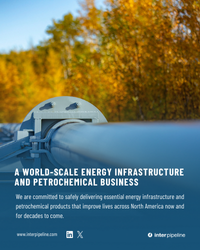Discussions about “peak oil” long ago shifted from when crude oil supply might reach its apex to when oil demand will peak and start to decline as the world becomes ever more energy-efficient and shifts to lower-carbon sources of energy. The date at which oil demand will stop growing is highly uncertain, and small changes in assumptions can lead to vastly different estimates. Also, there is little reason to believe that once oil demand peaks it will fall sharply — the world is likely to demand large quantities of oil for many decades to come. More importantly, the shift in paradigm from an age of perceived oil scarcity to an age of oil abundance poses major challenges for oil-producing countries as they try both to ensure that their oil is produced and consumed, and at the same time diversify their economies to prepare for a time when they can no longer rely on oil to provide their main source of revenue. Today, the Oxford Institute for Energy Studies and BP Group Chief Economist Spencer Dale summarize their recent report on future trends in oil supply, demand and prices.
The rise of electric vehicles and the growing pressures to decarbonize the transportation sector means that oil is facing major competition for the first time within its core source of demand. This has led to considerable focus within the industry and among commentators on the prospects for peak oil demand — the recognition that the combined forces of improving energy-efficiency and building pressure to reduce carbon emissions and improve urban air quality is likely to cause oil demand to stop increasing after over 150 years of almost uninterrupted growth. At the same time, the supply side of the oil market is experiencing its own revolution. The advent of U.S. tight oil has fundamentally altered the behavior of oil markets, introducing a new and flexible source of competitive oil. More generally, the application of new technologies has the potential to unlock huge new reserves of oil over the next 20 to 30 years.
The concept of peak oil demand, combined with increasingly plentiful supplies of oil, has led many to conclude that oil prices are likely to decline inexorably over time. Proponents posit that if the demand for oil is drying up and the world is awash with oil, why should oil prices be significantly higher than the cost of extracting the marginal barrel?
Our view is that growth in oil demand is likely to slow gradually and eventually peak, and that plentiful supplies of oil are likely to fundamentally alter the behavior of oil producing economies. However, we also argue in our new report that the current focus on the changing nature of the oil market is largely misplaced. Much of the popular debate is centered around when oil demand is likely to peak. Will it be 2025, 2035, 2040? (Figure 1 shows a few scenarios from recent analyses.)
Join Backstage Pass to Read Full Article










